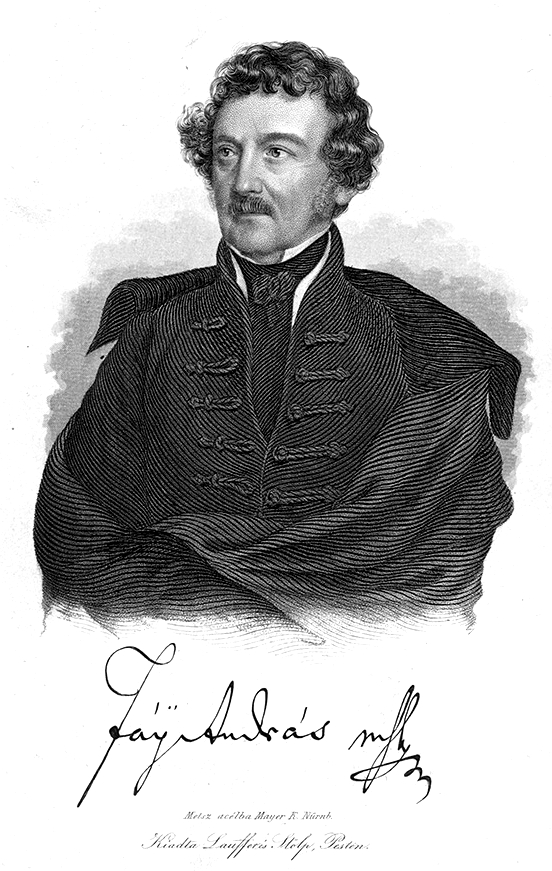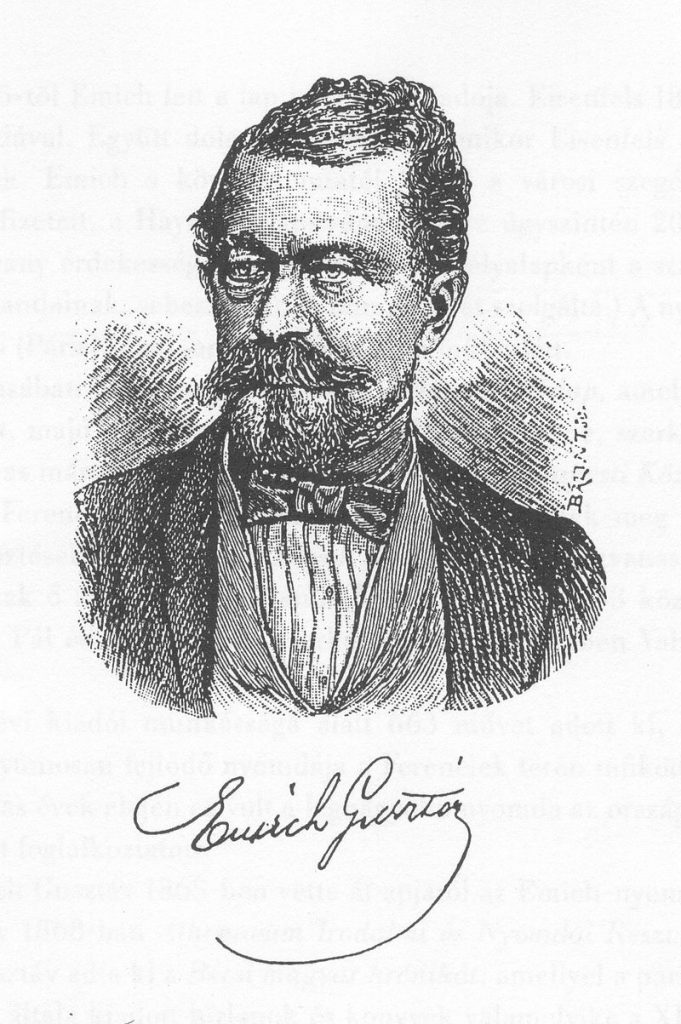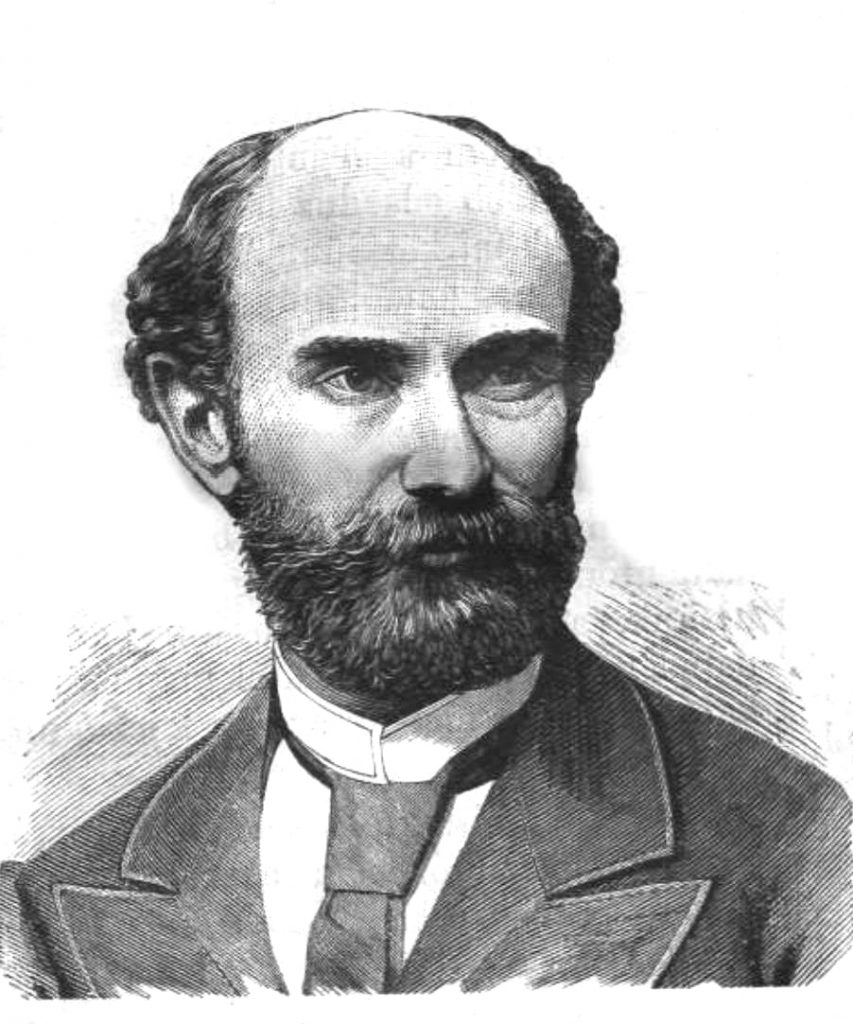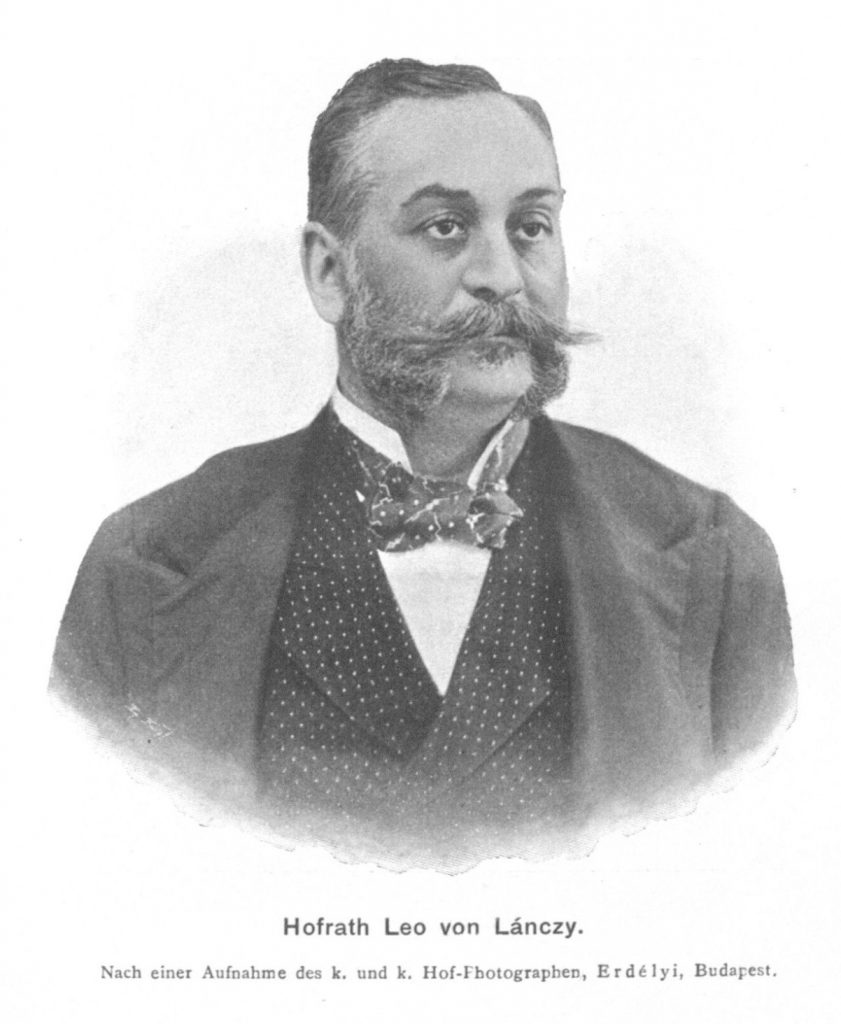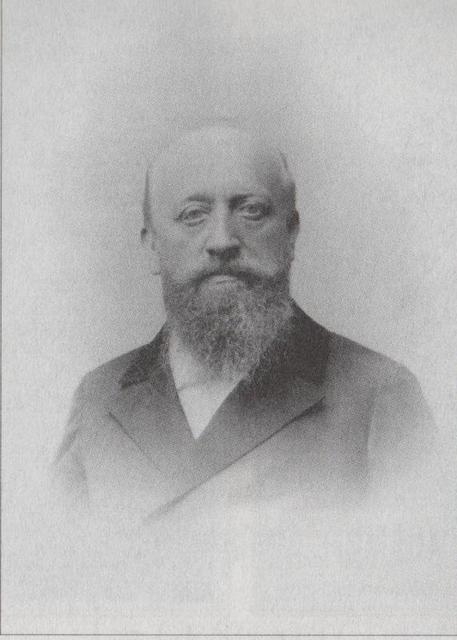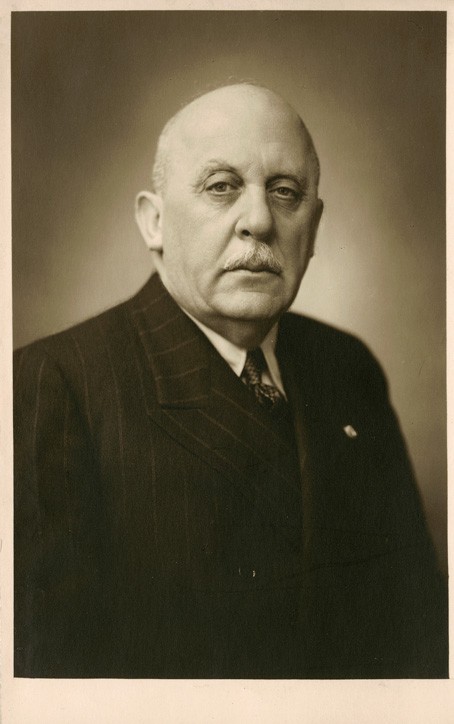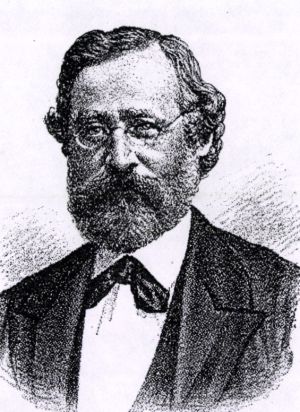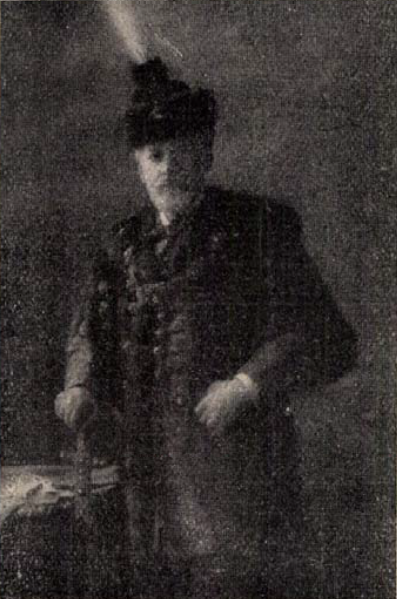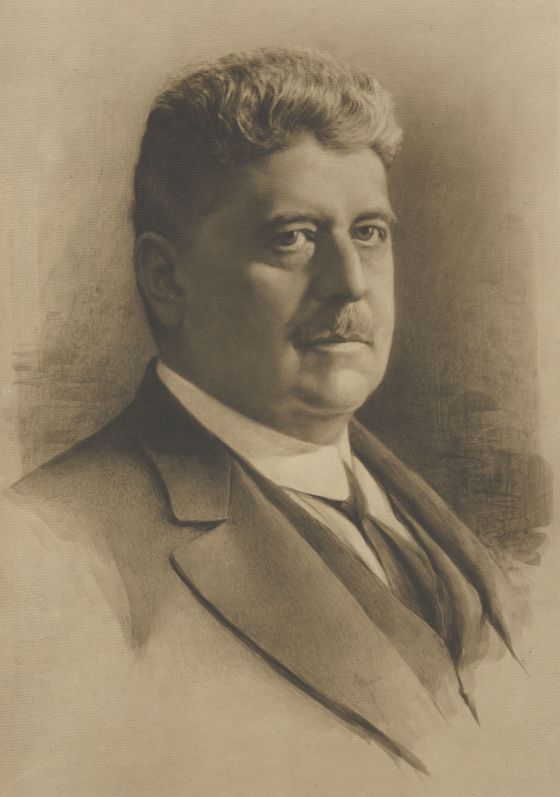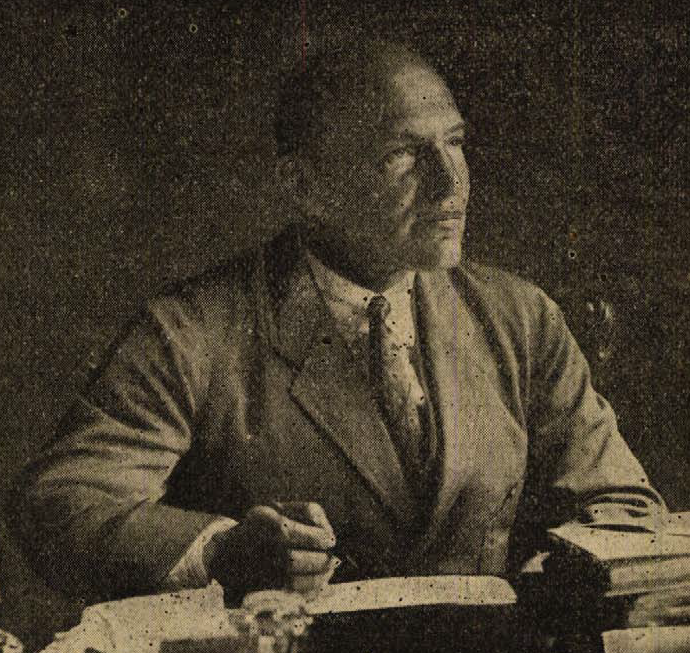Famous founders and leaders
Lipót Aschner
One of the most successful Hungarian managers of the first half of the 20th century, he was the CEO of the United Incandescent Lamps and Electricity Company (Tungsram).
Emil Bacher
Emil Bacher was born in Szucsány in 1854. He graduated from the Commercial Academy of Pest, and then worked as a clerk in the Pesti Viktória Steam Mill Joint Stock Company. He became first the company manager, then the commercial director and finally the general manager. In 1926, he was arrested on charges of speculation and misappropriation of funds: he was accused of having played a role in the financial bankruptcy of the grain conglomerate in the mid-1920s. He died in the autumn of 1926 after the company collapsed.
Balázs Mór Verőczei
Mór Balázs Verőczei, Mózes Kohn (Pest, 5 March 1849 - Remagen, 1 August 1897), private entrepreneur, founding director general of the Budapest Municipal Tramway Company.
Sándor Bálint (Büchler)
Bálint (Büchler) Sándor was born in Arad in 1840.He joined the Kőbánya Brickworks Company as a merchant, and was elected a member of the board of directors in 1877. In 1891 he changed his surname from Büchler to Bálint. He helped the company to develop by modernising and expanding it, and was awarded several medals by the Emperor in recognition of his work. He served as CEO and president of the company until his retirement in 1911. He died in Budapest in October 1915. In 1915, he was in charge of the [...]
Károly Barcza Jr. of Nagyalásony
Károly Barcza was born in Budapest in 1894. He was educated in the capital, then between 1917 and 1919 he was an official of the Hungarian General Credit Bank. From 1920 he held management positions at the Sarkad Hemp Factory, and from 1930 at the Alföldi Sugar Factory. Between 1939 and 1945 he was the general manager of the latter company. He was a director of several companies and a member of several associations and organisations.
Lajos Baumgarten
Lajos Baumgarten was born in 1846, a member of the long-established Baumgarten family. His grandfather, Israel Baumgarten, a wool and grain wholesaler, was one of the 100 wealthiest shareholders of the Hungarian Commercial Bank of Pest, founded in 1841, in the financial year 1847/48. His nephew was Ferenc Ferdinand Baumgarten, who founded the Baumgarten Prize, famous in literary history. He played an active role [...]
Dr. Leó Buday-Goldberger Budai
He was studying law, but due to the sudden death of his brother, he had to take over the family textile factory[MR1.1]. He quickly learned the ropes of running the company and turned the family business into a successful large enterprise. He led it like a true patriarch, while also living a very active social life and maintaining good relations with the highest circles. From 1932, he was a member of the House of Lords, but neither this, nor his good connections and wealth, saved him from the persecution of the Jews. On 19 March 1944, he was among the first to be arrested by the Germans. He died on the day of the liberation of the Mauthausen camp.
Konrád Burchard-Bélaváry
Konrád Burchard-Bélaváry (1837-1916) was an economist, president of the Pesti Hengermalom-Társaság.He was born in 1837 in Eperjes, where he completed his secondary education. He studied in Berlin and Gdansk, then returned home and became an employee of the Hengermalom Society. Here his career rose steadily, first as a member of the board of directors, then as vice-president, and finally as president from 1906 to 1916. He played an active part in the company's development. He also took a leading role in a number of other shareholding companies.
Dr. Ferenc Chorin, Sr.
Dr. Ferenc Chorin (Arad, 11 May 1842 - Budapest, 20 January 1925) lawyer, politician, businessman, member of the Hungarian House of Lords, Member of Parliament, President of the National Association of Hungarian Industrialists, General Counsellor of the Hungarian National Bank. His son Ferenc Chorin Jr. was one of the most influential businessmen of the Horthy era.
Ifj. Ferenc Chorin
Born in Budapest in 1879, id. Ferenc Chorin and Amália Russ. His father was the chairman and managing director of the Salgótarján Kőszénbánya Rt., a member of the House of Representatives and then of the House of Lords from 1903, the founder of the National Association of Hungarian Industrialists (MGYOSZ) (1902) and its president until his death in January 1925. After his university studies in Budapest and Berlin, Ferenc Chorin Jr. was made a lawyer in 1901 sub auspicüs regis[1] and [...]
Count Sándor Zombolyi Tzekonich
Count Sándor Csekonics (1872-1951), landowner, royal cupbearer, imperial and royal chamberlain, director and later president of the South Hungarian (Nagybecskerek - Velici Beckerek) Sugar Factory Joint Stock Company. He studied law in Budapest, then worked as a politician and lived off the income and interests of his large estates. After his father's death in 1929, he managed and administered the family estates, which had been reduced in size by the Trianon Peace Treaty, but had to give them up in the 1930s and 1940s, mainly due to external circumstances. He spent the end of the Second World War and the years of socialism in poverty and hiding. He was deported in 1951 and buried in an unmarked grave after his murder.
Dr. Aurél Dobay Nagyhantai
Born in 1871 in Budapest, he married Margit Beck of Madarasi in Budapest in January 1904. Dobay was then working as a lawyer and living in Budapest. In 1906, together with his father, Dr. Rafael Neumann, he was awarded the Hungarian nobility with the first name of Nagyhantai. In 1918, he received the Order of Franz Joseph of the Order of the Middle Cross in recognition of his activities. Aurél Dobay's name became more public during the collapse of the Viktória milling concern. In the situation following the bankruptcy, Dobay [...]
Dr Knight Mór Domonyi Domony
Dr. Móric Domonyi Domonyi (1872-1944) was born into a noble family in Pest. He completed his secondary school education here and then studied law at the University of Budapest. He rendered unparalleled services to the development of transport in Hungary, especially in the field of Danube navigation. In addition, he was actively involved in the promotion of industry in Hungary and abroad as a member of the board of directors of several industrial companies. For 15 years he was the President of the Brasov Cellulose Factory Joint Stock Company.
Pál Elek Malomsegi
Pál Elek was a kind of all-rounder, who set up and built up the Hungarian Trading Company and then the Hungarian Bank. He took on risky business ventures and was able to turn failure into success. The successful bank director had many opponents, his strange business solutions were opposed by many, but that was not his downfall, it was an embezzlement charge in a party finance case.
Gusztáv Emich
Gusztáv Emich (Buda, 3 November 1814 - Pest, 3 April 1869) bookseller, publisher, printer. Son of Ifj. Gusztáv Emich, publisher, writer on printing history and natural history.
Pál Engel
Pál Engel worked at the Anglo-Austrian Bank from his early teens until his retirement in 1925. He represented the bank as a director or chairman in a number of companies that were either part of the bank's interests or were founded by the Anglo-Austrian Bank. Towards the end of his life he planned to set up his own bank.
András Fáy from Fáj
András Fáy Fáji (Kohány, Zemplén county, 30 May 1786 - Pest, 26 July 1864) writer, politician and national administrator, one of the most active figures of the literary and social movements of the Hungarian reform era, director of the Kisfaludy Society from 1837 to 1841. In one of his writings about András Fáy, Kálmán Mikszáth wrote that if Széchenyi had not been called 'the greatest Hungarian', then András Fáy would have been, and if Ferenc Deák had not been the 'sage of the country', then András Fáy would have been, but he was merely 'the all-rounder of the nation'.
Miksa Fehér of Nagyabony
Miksa Fehér worked his way up through the ranks at the Hungarian Commercial Bank of Pest and retired from there, but like many other bank CEOs, he held positions at a number of other companies, which he retained until his old age. He married twice and had two children by his first marriage, one of whom was a victim of the Holocaust.
Henrik Fellner
Henrik Fellner (1859-1932) industrialist, banker, member of the Upper House. He studied at the Commercial Academy. He started his career first abroad and then at the Hungarian Commercial Bank of Pest, where he was managing director from 1892. After the death of his father-in-law, he took over the management of his father-in-law's distillery. He also served as a director of several other companies, including the United Lamp and Electricity Company. He died in Budapest in 1932.
Sándor Fleissig
Sándor Fleissig (Budapest, 4 June 1869 - Budapest, 5 May 1939): banker, fifth president of the Budapest Commodity and Stock Exchange.
Dr. Gyula Gerlóczy of Lower Viscounty
Gyula Gerlóczy was born in 1868. He worked first in the judiciary and then in the Ministry of Finance. He later worked as a departmental counsellor, director of the financial department of MÁV, and briefly as its president. Before his retirement he was appointed Government Commissioner and Ministerial Secretary. He has published a number of articles on financial topics in journals.
Henrik Haggenmacher Sr.
Henrik Haggenmacher was born into a miller's family in Switzerland in 1827. He found his fortune in Budapest, in the emerging milling industry. He continuously improved his own mills with equipment he developed himself, but he also increased his wealth in other areas. The entrepreneur, who raised 12 children, was also active in charity work and served as Swiss consul for 40 years.
Henrik Haggenmacher Jr.
He was born as the son of a well-known Swiss-born mill owner, whose father and uncle also worked in the milling industry. Despite this (or perhaps because of it), the younger Henrik Haggenmacher worked in the beer industry, managing the brewery purchased by his father and turning it into one of Hungary's leading breweries. The successful businessman passed away in 1917 at the age of 62, having lived a very long life, just like his father.
Baron János Harkányi of Taktaharkányi
Baron János Harkányi (1859-1938) Zemplén County landowner and banker, between 1896 and 1902 a member of the Parliament of the Free Party, between 1913 and 1917 Minister of Commerce. In the 1920s and 1930s, he served as chairman and board member of several companies and joint-stock companies, and became known not only for his extraordinary experience in politics but also for his financial expertise. He was chairman of the Hungarian Sugar Industry Joint Stock Company from 1902 to 1938.
Baron Károly Hatvany-Deutsch of Hatvan
Baron Károly Hatvany-Deutsch was born in 1863. He married in 1896, and in 1897 the family was given the opportunity to bear the surname Hatvany-Deutsch, which was changed back to the shorter form in 1911. In 1908 he was made a baron. He was a board member, chairman and vice-chairman of several joint-stock companies. He died in Budapest in 1943.
József Hiller
József Hiller was born in Lučki on 25 February 1885. After studying law, he qualified as a lawyer and settled in Budapest. Through his mentor, Dr. Ármin Tetétlen, he became involved in the production of bauxite ore in Hungary, and through sponsors he acquired first mines and then production rights to exploit the raw material content of the plants. The aim of the new companies founded under his leadership, first in 1917 and then in 1923, was to channel the results of domestic and foreign production to Hungary. Although production was partly oriented towards Germany under his leadership, he was deported at the end of the Second World War. He died in Mauthausen.
Elemér Horváth
Horváth Elemér (1858, Klopódia - 20.11.1930, Budapest) lawyer, bank officer, third president of the Budapest Commodity and Stock Exchange.
Kálmán Jálics
The Jálics family came from Csáktornya, and moved first to Buda, then to Pest. They gained the title of nobility in 1795. Kálmán Jálics was born in 1834. In 1822, his father, Ferenc Jálics, founded the firm Jálics A. Ferenc and Partners in Pest, which was first engaged in the trade of colonial goods and later in the wine trade. Ferenc Jálics was also actively involved in the credit business, including participating in the [...]
Henrik Jellinek from Haraszti
After the death of his father, at the age of 30, in 1883, he took over the management of the Budapest Road Railway Company. Under his directorship, the company was consistently profitable and the network expanded. He was the initiator of the construction of local railways of local interest around Budapest and successfully led the electrification of the BKVT horse railway network. He resigned as head of the BKVT in 1911, and after World War I he was a supporter of the newspaper Új Nemzedék.
Mór Jellinek
Mór Jellinek, (locally Móric Jellinek or Jelinek) (Uherský Brod (Magyarbród), 1823 - Budapest, 13 June 1883) economist, wholesaler, president of the grain warehouse, general manager of the Budapest Road Railway Company. Father of Arthur Jellinek, lawyer and Member of Parliament, uncle of Emil Jellinek, one of Daimler's investors.
Dr Rudolf Kállay of Nagykállai
Born in 1889 in Nagykálló, into the Kállay noble family. He started working first in Nyíregyháza and then at the Hitelbank in Budapest. He took part in the First World War, where he was taken prisoner. After his return home, he was involved in promoting foreign economic relations. In 1930 he was appointed Managing Director of the Hitelbank, a post he held until the end of the Horthy era. He died in 1958.
Baron Frigyes Kochmeister
Baron Frigyes Kochmeister (Sopron, 22 November 1816 - Budapest, 11 September 1907) was the first president of the Pesti Commodity and Stock Exchange, established in 1864.
Dr. Baron Adolf Kohner of Szászberek
Adolf Kohner was born in 1866. He was the manager of the firm Kohner Adolf and Sons, which he inherited from his paternal uncle and named after himself. In addition to the banking company, he also held the presidency of other companies, gaining influence in companies such as Union Joint Stock Company and First Hungarian Wool Washing and Finishing Company. He lost most of his fortune in the crisis of the early 1930s and died on his estate in 1937.
Ágoston Kohner
Although Ágoston Kohner took a role in the family business founded and run by his brother, he did not take a back seat, he was not a second fiddle. He was very active as a business founder, and it was through his marriage (and that of his younger brother) that the family came into serious land holdings. Ágoston Kohner also played a major role in the domestic chemical industry, not only as a company director but also as the founder of the professional association.
Zsigmond Kohner
Although he came from a wealthy merchant family, Zsigmond Kohner founded a new company in 1872 with the support of his father-in-law and a donation from his wife. The company became successful, and Zsigmond Kohner was able to lead a successful and respected life. Not only was he active in business, but he also played a significant role in his religious community.
Baron Pál Kornfeld
Short biography Pál Kornfeld was born in 1884. He held senior positions in the Hungarian General Credit Bank for nearly three decades, the highest of which was the post of Deputy General Manager. In the last years of his career he was responsible for economic relations with foreign partners. He retired from his post in 1931.
Baron Zsigmond Kornfeld
Zsigmond Kornfeld (Goltsch-Jenikau, Czech Republic, 27 March 1852 - Budapest, 24 March 1909) was a banker, the CEO of the Hungarian General Credit Bank and the second president of the Budapest Commodity and Stock Exchange.
Géza Kovács
His father was a well-known rabbi and historian, but Géza Kovács chose a business career, in which he became very successful. During his long career he rose to the highest positions in the General Credit Bank. Unfortunately, the circumstances of his death are not known; he is believed to have been an anonymous casualty of World War II.
Leó Lánczy
Lánczy Leó (Pest, 10 May 1852 - Budapest, Terézváros, 26 January 1921) was a bank president.
László Láng
László Láng was born in Bratislava, originally German-speaking, and was a good craftsman. Because of his poor academic results in high school, his doctor father sent him to an industrial school in Vienna. He later graduated from a school of higher industry. In 1867 he returned home after several years of practice abroad and first took up employment with Hungarian firms. In 1868, he became self-employed and set up his own machine shop. The machine shop later became the Láng Machine Works, which he ran until 1911. He was not only the factory manager, but also a foreman, a salesman who lived next to the factory and in the factory itself. He retired from day-to-day management in 1911, handing over the reins to his son Gustáv Láng, who died on 1 January 1914.
Ágoston Léderer
Founder of a factory, art collector, patron of the arts and distiller of spirits, Ágoston Léderer was all of these. Born in 1857 in Böhmisch-Leipa in the Czech Republic, Ágoston Léderer was the founder, the soul and the owner of many businesses, and was known in his day as the spirit king of Central Europe. One of his most important businesses was the Győr Distillery, and he lived in the Hungarian city for a time. In addition to business, he was involved in the art world as a patron of the arts, supporting geniuses such as Klimt and Schiele.
Baron Henrik Lévay of Kistelek
Henrik Lévay was born in 1826 in Jánoshalma, Bács county. One of the most important insurance specialists of his time. He played an important role in the foundation of the First Hungarian General Insurance Company and was its CEO for forty years. He was involved in the founding and management of several insurance companies, banks and steam mills, and is the founder of several cultural, scientific and charitable foundations. For his work in economics, he was first made a nobleman with the title of nobility of Kistelek in 1868, then a baron in 1897 and became a member of the House of Lords.
Dr. Baron Gyula Madarassy-Beck of Madaras
Madarassy-Beck Gyula, baron (Budapest, 18 August 1873 - Budapest, 20 November 1939): banker, big capitalist.
Dr. Baron Marcell Madarassy-Beck of Madaras
Madarassy-Beck Marcell, Baron (Budapest, 11 February 1873 - Mauthausen, 19 January 1945): lawyer, banker.
Baron Miksa Madarassy-Beck of Madaras
Miksa Madarassy-Beck, Baron (Bácsmadaras, 9 May 1839 - Budapest, 10 March 1924): banker, economist, CEO of the Hungarian Calculation and Currency Exchange Bank Ltd.
Baron Nándor Madarassy-Beck of Madaras
Nándor Madarassy-Beck, Baron (Bácsmadaras, 15 August 1840 - Budapest, 16 February 1909): banker, economist, CEO of the Hungarian Mortgage Credit Bank.
Lajos Mándy
Lajos Mándy Jr. was born in Budapest in 1884. He first worked in Vienna, then joined the Hungarian General Credit Bank. He participated in the First World War. After the war, he gradually rose through the ranks, first as a manager, then as director of the provincial branches, and finally as managing director. He was director and president of several companies, and in 1940 he was appointed Treasury Chief Adviser.
Ferenc Marschall
Ferenc Marschall (Timisoara, 2 October 1887 - Budapest, 23 January 1970) agricultural politician, Minister of Agriculture, seventh President of the Budapest Commodity and Stock Exchange.
Dr. Sándor Matlekovits
Sándor Matlekovits (1842-1925) was a commercial state secretary, politician and writer, full member of the Hungarian Academy of Sciences. He studied in the capital, and in the meantime had already distinguished himself with his numerous scientific works. He served as State Secretary until 1889, during which time he made a significant contribution to the development and promotion of Hungarian industry and trade. After resigning his position for political reasons, he served as a member of parliament on several occasions until 1902. After the turn of the century, he headed a number of associations and economic enterprises, including the Hungarian Electricity Joint Stock Company between 1893 and 1914/1915 and the First Hungarian Paper Factory Joint Stock Company between 1923 and 1925.
András Mechwart of Belecska
Without András Mechwart, Ganz would probably have remained a small Hungarian factory manufacturing railway wheels in Víziváros, Buda. However, under András Mechwart's leadership, the company became one of the world's leading industrial enterprises, becoming an indispensable player in the milling industry, railway vehicle manufacturing and electrical engineering by the end of the 19th century. András Mechwart was born in Bavaria and came to Budapest by chance. He became the director of Ganz at a young age and turned it into a major company under his leadership.
János Neuhold
János Neuhold was a pioneer in the telecommunications and electrical engineering industry in Hungary. He studied to become a military engineer, then for family reasons he left the army and started a business in the telecommunications industry. He worked for his factory and factories all his life, as he had to start a completely new business in the middle of his life. As a successful entrepreneur, he died in a trial in Hanover. His main work, the Telephone Factory, survived for nearly a century.
ormodi Ormody Vilmos
Vilmos Ormody was born in 1838 in Miskolc. He was one of the most important insurance specialists of his time. Immediately after his secondary school education, he joined the First Hungarian General Insurance Company, serving as an officer for nearly 40 years, then as its CEO for 24 years, and finally as its president for a decade until his death at the age of 94. He is credited with a number of initiatives and charitable foundations, mainly for the welfare of civil servants. For his work in the field of economics, he was made a nobleman with the title of Orvald in 1897 and a baron in 1906, and was made a member of the House of Lords.
Knight Lajos Ossoinack
From a young age, Johannes Aloysius Ossoinack (Rieka, 26 June 1849 - Rijeka, 28 October 1904), from a merchant family in Rijeka, founded several industrial and shipping companies in Rijeka, which later became world famous, while he was also a prominent figure in local political and social life. He was to the town what Széchenyi was to Hungary: he spent his life seeking new innovations (mechanised woodworking, modern rice processing, oil refining, etc.) and made a name for himself by introducing methods that had proved successful abroad.
Major Ede Pallavicini
Margrave Ede Pallavicini was born into an old noble family of Italian origin in 1845. In addition to managing his estate of several thousand acres in Transdanubia, he studied law and in the 1870s successfully rose through the ranks. From 1880 he served as president of the Hungarian General Credit Bank and as an internal councillor. In the last decade of the century, he initiated the establishment of several companies, including the Agricultural Industry Joint Stock Company, of which he was chairman until 1913. He died in Rijeka in 1914.
Ribáry (Reich) Mór
Mór Ribáry (until 1902 Reich) was born in 1859 in the village of Alsólóc in Bratislava County. In 1873, at the age of 14, he began his career as a clerk at the Pesti Insurance Institute, where he became general manager in 1916 and worked for the company for 54 years until his death in 1927. He was a member of the board of directors or supervisory board of several companies of the Adriatic Insurance Group in Hungary and abroad. In 1914 he was awarded Hungarian nobility with the first name of Alsólóczi for his work in economics.
Vilmos Sarbó (Schön) of Szepesváralja
Vilmos Schön (from 1898 Sarbó) was born in 1829 in Szepesváralja. One of the most important insurance specialists of his time. After his secondary school education, he began his clerical career at the Austrian Phoenix Insurance Institute and later joined the Pesti Insurance Company. From 1868 to 1899, he was the company's managing director for 30 years, and after his resignation, he was a member of the board of directors until his death in 1906.
Richárd Schmidt
Richárd Schmidt (Budapest, 1875 - Budapest, 14 June 1943), industrialist, sixth president of the Budapest Commodity and Stock Exchange.
Sándor Stux
Sándor Stux was born in 1877 into a family engaged in the grain trade. He tried his hand at the First Budapest Steam Mill Joint Stock Company and then at the Pesti Molnars and Sütők Steam Mill. In 1919 he merged the mills under his management into a single group. In 1933 he was appointed chief adviser to the government. He died in Budapest at the end of 1941.
Pál Szécsi
Pál Szécsi was born in Budapest, the son of a successful lawyer, and although he was interested in music, he chose a career in economics. He had a successful career at the Hazai Bank and spent much of his life doing charity work.
Ferenc Székely (Schlesinger)
Székely (Schlesinger) Ferenc was born in 1858 in Alap, Fejér county. After his commercial studies, he first became an apprentice and then head of department in Budapest. In 1892, he was invited to become the president of the Belvárosi Takarékpénztár Részvénytársaság. From 1902 until his death in 1936, he was Chairman of the István Brickworks Joint Stock Company. He was actively involved in the political life of Budapest and in promoting the unity of the Jewish community in Hungary. Schlesinger [...]
Lajos Szende (Stern)
Lajos Szende has worked for the Hungarian General Coal Mining Company since he was 30 years old. First as a secretary, then after the turn of the century as the company's CEO. In the 1910s, he was able to increase the company's profits and production through significant improvements, and played a major role in improving the living conditions of the workers. He died in 1914 at the age of 47, after which a workers' welfare fund was named after him.
Oszkár Szirmai (Spitzer)
Oszkár Szirmai Nagysárosi (1858-1943) was an economist, president and CEO. He started his career at the Hungarian General Credit Bank, then moved to the Kőolajfinomítógyár Részvénytársaság, where he became deputy director and later director. Between 1912 and 1935, he was President of the Budapest-Szentlőrinci and Tatai Tile and Brick Works Joint Stock Company, where he was appointed Chairman of the Board of Directors of the Budapest-Szentlőrinci and Tatai Tile and Brick Works Joint Stock Company, and [...]
Count Géza Teleki of Szék
Géza Teleki (1843-1913) was born into a Catholic family in 1843. He was educated in Transylvania and studied law at Hohenheim. He first served as a member of the administrative committee in Satu Mare County and later as a member of the Parliament. Between 1889 and 1890 he also held the position of Minister of the Interior. After the turn of the century he retired from politics and was mainly involved in scientific and charitable associations. His success as an entrepreneur is attested to by the fact that, as chairman of the Budapest General Electricity Joint Stock Company between 1896 and 1906, he made a significant contribution to the development and success of the company.
Lajos Tolnay
Lajos Imre Gyula Tolnay (1837-1918) engineer, director and president of MÁV, Member of Parliament. After returning from the war for Italian unity, he was involved in railway construction and planning from the 1860s, first locally and then from the 1870s nationally. During this period he also held the post of chairman of the board of directors of the Hungarian State Railways (MÁV), and made an invaluable contribution to the development of the Hungarian state railways. In addition to his political activities, he was a member of the board of directors of several industrial companies and president of the First Hungarian Pig Fattening Corporation between 1902 and 1911.
Baron Adolf Ullmann of Baranyavár
Adolf Ullmann was born in Pest in 1857. After graduating from the Academy of Commerce in Pest, he worked at the Hungarian General Credit Bank. Here he steadily moved up the ranks, becoming director of the bank in 1895 and its CEO in 1909. He was an active representative of contemporary banking life, and his publications were published in this field. In the 1910s he played a role in the revival of the credit bank. He died in Budapest in 1925.
Baron György Ullmann of Baranyavár
Baron György Ullmann of Baranyavár was born in 1891. He studied in the capital and then joined the Hitelbank. He first became a company manager, then a director, and finally, between 1924 and 1945, he served as managing director. He held the position of director or president of several companies during the Horthy era. He left Hungary in 1948 and died in Germany in 1961.
Károly Végh of Győr
Károly Végh (Vienna, 2 October 1859 - Budapest, 3 February 1941) was an economist and the fourth president of the Budapest Commodity and Stock Exchange.
Fülöp Weiss
Ábrahám Weiss, a prominent banker and financial expert in industrialising Hungary, was born in Budapest as the son of cloth merchant Ábrahám Weiss and Karolin Stransky. After graduating from the Dresden Commercial Academy, he worked for several financial institutions. In 1882, he joined the Pesti Magyar Kereskedelmi Bank, from which he retired in 1938. He died unexpectedly in Zurich in 1942 during a business trip. His grave is located in the Fiumei Road Cemetery.
Baron Manfréd Weiss of Csepel
Perhaps the best-known Hungarian entrepreneur was Manfréd Weiss, who turned the initial cannery in Csepel into a huge factory empire bearing his name. From a small factory to a citadel of Hungarian industry, Manfréd Weiss and his brother Bertold had the good sense to found, manage and make it great. For Manfred Weiss, the factory was the reason for his life - when the Soviet Republic nationalised it, he attempted suicide. He survived, but never fully recovered, and his death in 1922 was one of the reasons for this shock.
Emil Wolf
Emil Wolf was born in 1886 as the son of a merchant family. He obtained a degree in chemical engineering in Germany. In 1910, he and György Kereszty founded the predecessor of Chinoin, which, after initial difficulties, began to flourish in 1912 with the production of synthetic-based medicines. Despite the difficulties of the First World War, the company became famous for its continuous developments in the following decades under the leadership of Emil Wolf. Due to the anti-Jewish laws, Wolf resigned from his position in 1941 and was deported in 1944. He returned home, but died in Belgium in 1947 during a trip abroad.
